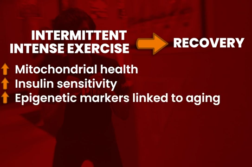NEW HAVEN, Mass. (Ivanhoe Newswire) – There’s been a lot of confusion over COVID shots and boosters — how many do you need and when do you need them? The CDC says all Americans over 12 years of age should receive the new booster against Omicron, but so far, only about four percent have done so. Now, scientists are testing a nasal spray that they say has been very effective in the lab trials and may someday be a viable option for patients.
From allergy relief to protection from the flu, a quick pump delivers medication directly into the respiratory system. Now, Yale researchers are testing a COVID booster nasal spray.
Yale School of Medicine immunobiologist, Akiko Iwasaki, PhD explains, “The reason we’re focusing on the nasal cavity is because that’s where the virus first lands.”
Iwasaki says current mRNA boosters lose strength over time and are not as effective in the nose and respiratory tract. The Yale nasal spray contains spike proteins from the coronavirus.
“Essentially, it’s a booster that contains the right vaccine antigen inside that bottle,” Iwasaki adds.
For some patients who are reluctant to get the COVID booster because they hate needles, a nasal spray could be a better option. Iwasaki says there are also other benefits.
“It may have less side effect than having a shot. So, people who are afraid of the side effect, hopefully this will also alleviate such hesitation,” she says.
Yale University has licensed the nasal vaccine. Iwasaki and a colleague, Mark Salzman are co-founders of Xanadu Bio, a spinoff company that would allow them to take the vaccination techniques to production.
Contributors to this news report include: Cyndy McGrath, Producer; Kirk Manson, Videographer; Roque Correa, Editor.
To receive a free weekly e-mail on medical breakthroughs from Ivanhoe, sign up at: http://www.ivanhoe.com/ftk
Source:
https://medicine.yale.edu/news-article/nasal-approach-to-covid-vaccination-gains-traction-at-yale/
MEDICAL BREAKTHROUGHS
RESEARCH SUMMARY
TOPIC: COVID BOOSTER: NASAL SPRAY ON THE WAY?
REPORT: MB #5153
BACKGROUND: Coronavirus disease (COVID-19) is an infectious disease caused by the SARS-CoV-2 virus. The virus can spread from an infected person’s mouth or nose in small liquid particles when they cough, sneeze, speak, sing or breathe. These particles range from larger respiratory droplets to smaller aerosols. There are currently almost 94 million cases of the coronavirus with an average of over 26,000 people contracting the virus every seven days, and over one million deaths.
(Sources: https://www.who.int/health-topics/coronavirus#tab=tab_1
https://usafacts.org/visualizations/coronavirus-covid-19-spread-map)
DIAGNOSING: To test for the COVID-19 virus, a health care provider takes a sample from the nose (nasopharyngeal swab), throat (throat swab) or saliva. The samples are then sent to a lab for testing. If you’re coughing up sputum, that may be sent for testing. The FDA has authorized at-home tests for the COVID-19 virus. The most common things people who become ill with COVID-19 have include fever or chills, a dry cough or shortness of breath, fatigue, muscle or body aches, new loss of taste and/or smell, sore throat, congestion or runny nose, and/or nausea or vomiting.
https://www.webmd.com/lung/covid-19-symptoms#1)
NEW TECHNOLOGY: Vaccines protect against severe COVID-19, but they’re less adept at preventing infection. That has many scientists pursuing a needle-free alternative: nasal sprays to ward off SARS-CoV-2 infection. The sprays would be fast-acting and would be applied frequently, perhaps once or twice a day, to the site where the virus first takes hold — the throat and nasal lining. Unlike vaccines, which train the recipient’s immune system to build durable protection, the sprays are short-lived compounds that would directly block the virus’s ability to enter cells. Multiple research teams have shown that such sprays effectively prevent SARS-CoV-2 infection in animals.
(Source: https://www.nature.com/articles/d41586-022-03575-x)
FOR MORE INFORMATION ON THIS REPORT, PLEASE CONTACT:
Colleen Moriarty
If this story or any other Ivanhoe story has impacted your life or prompted you or someone you know to seek or change treatments, please let us know by contacting Marjorie Bekaert Thomas at mthomas@ivanhoe.com




